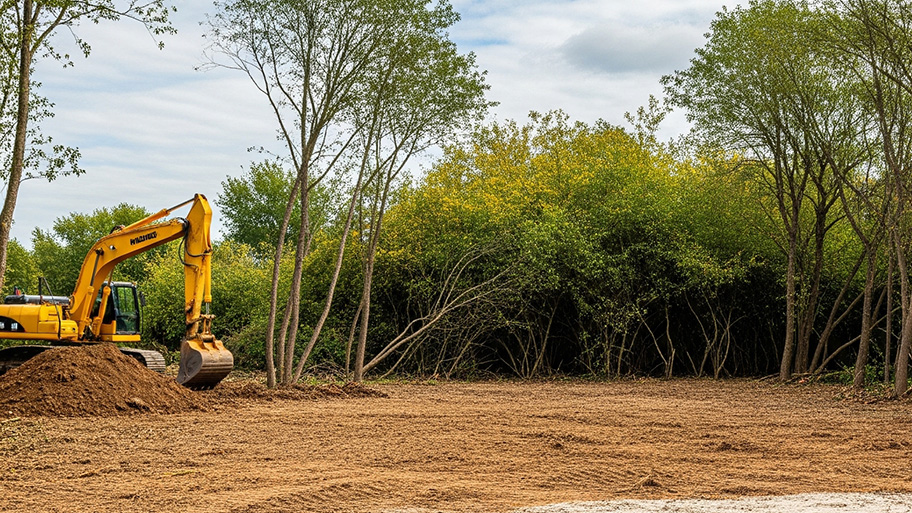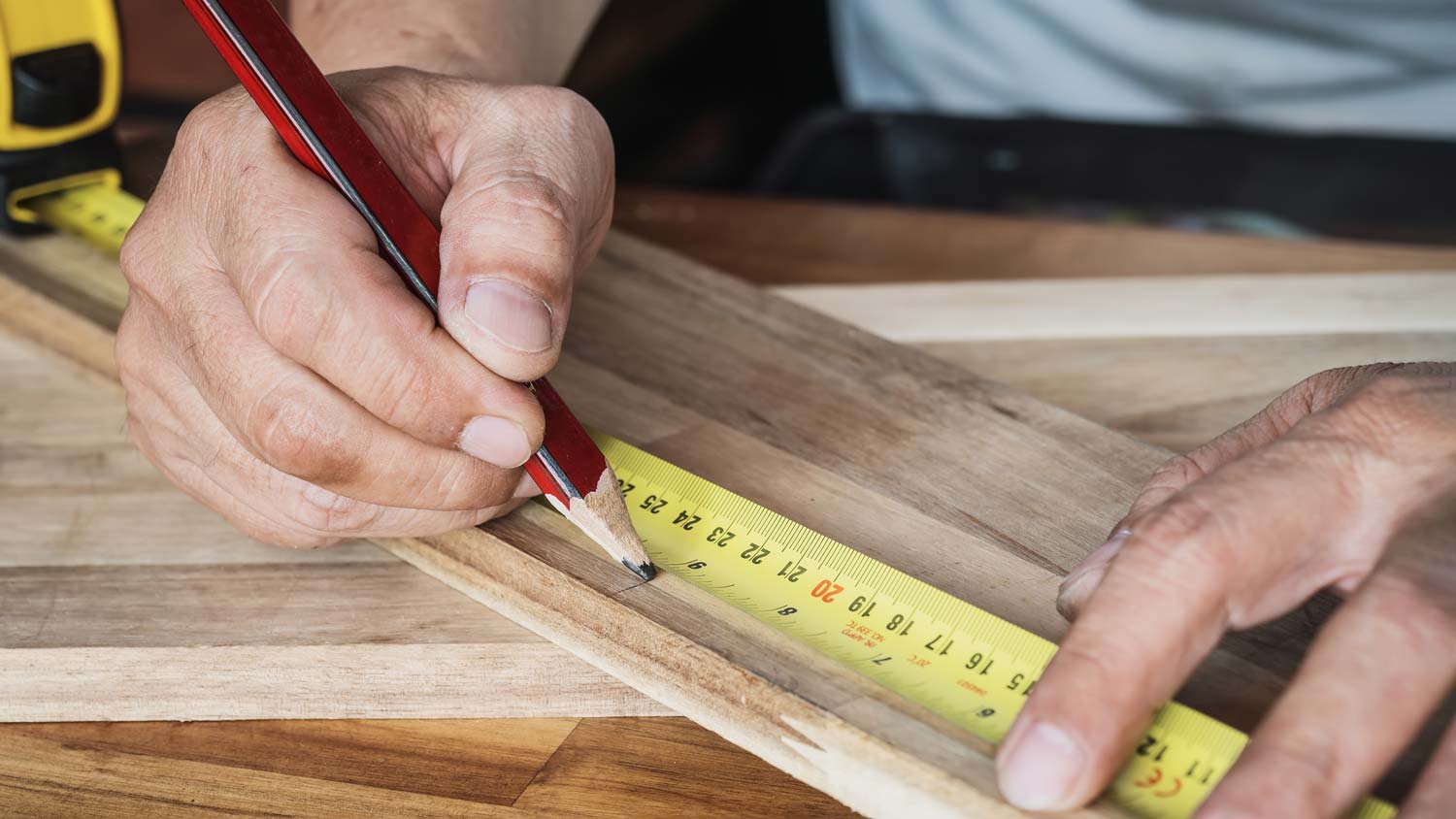
Going from an undeveloped plot to your dream home can be expensive. Learn about the cost to develop land and what factors can affect your total.
Contractor service costs depend on your project and location. Check with a local pro for your specific job.
Repair type, level of damage, and labor are the main factors affecting stair repair costs.
Expect to spend $60 to $250 per step, depending on the repair type and complexity.
Professional repairs range from $40 to $200 per hour and ensure your stairs meet safety codes and last longer.
Structural repairs or replacements often require permits, costing $50 to $250, depending on your local requirements.
This article was created using automation technology and thoroughly fact-checked and edited by an Angi Editor in accordance with our AI policy.
Average stair repair costs range from $953 to $3,236, with an average of $2,047 for most homeowners. Minor repairs may cost as little as $321, while major structural fixes can exceed $6,000. Expect to pay $60 to $250 per step or $50 to $200 per hour for labor, depending on the project’s complexity and the pro you hire.
Repairing stairs keeps your home safe and prevents bigger problems down the line. This guide explains what impacts stair repair cost, what to expect, and how to make smart choices for your home and budget.
How much you’ll pay to repair your stairs depends on a variety of factors. Here’s a closer look at how your total breaks down.
Stair repair covers a range of fixes, from tightening squeaky treads to replacing handrails and repairing structural framing. Common repairs include working on treads (the horizontal part you step on), risers (the vertical boards), stringers (the stair supports), railings, balusters, and landings. The cost depends on what needs fixing, the materials involved, and how easy it is to reach the damaged area.
| Repair Type | Description | Average Cost |
|---|---|---|
| Squeak repair | Tightening or securing loose treads/risers | $150–$500 |
| Tread replacement | Replacing individual steps | $200–$600 |
| Railing repair | Fixing or replacing handrails or balusters | $250–$1,000 |
| Refinishing stairs | Sanding and staining or painting | $300–$1,200 |
| Structural repairs | Fixing stringers or major framing issues | $1,000–$5,000 |
| Landing repair | Repairing or replacing stair landings | $400–$1,200 |
The size of your staircase and the number of steps directly impact the overall repair cost. Repairing a single step or a small landing is less expensive than fixing an entire staircase, especially if multiple parts need attention.
Smaller staircases often cost less to repair due to fewer materials and less labor. Larger or multi-story staircases are more complex and may require additional support or specialty parts.
Repair cost per step ranges from $60 to $250, but extensive repairs across a large staircase can add up quickly.
Labor can account for 50% or more of the total cost, especially for repairs in tight spaces or curved staircases. Several types of professionals handle stair repair projects, each with their own rates and specialties. Carpenters are often called for wood stair repairs, while general contractors may handle more extensive or multi-part projects. Stair specialists focus on complex designs or high-end materials.
Carpenters charge $40 to $100 per hour or $300 to $1,200 per project, depending on the repair type and material.
General contractors manage larger or multi-trade projects, with rates from $70 to $150 per hour or $500 to $2,000 per project.
Stair specialists with expertise in curved or custom stairs may charge $100 to $200 per hour or higher for specialty work.
Labor rates can vary significantly by region. In large urban areas, hourly rates tend to be at the higher end, while rural regions may see lower costs. Hire a stair specialist when working with unique designs, high-end materials, or structural repairs that require deep expertise.
Depending on the scope of your stair repair, you may need to hire additional professionals:
Structural engineer: For major structural issues or visible sagging, a structural engineer’s assessment costs $300 to $800.
Painter or finisher: After repairs, painting or staining stairs can cost $2 to $6 per square foot or $200 to $600 for an average staircase.
Junk removal or cleanup service: Removing debris or old stair parts may add $100 to $300 to your total project cost.
These pros ensure your repairs are thorough, safe, and leave your home looking its best.
Stair repair cost varies across the country, influenced by local labor rates, material prices, and permitting requirements. Urban areas and regions with a high cost of living tend to see higher prices for both labor and materials. In contrast, rural or low-cost regions often have more affordable rates.
Availability of skilled pros and access to specialty materials can also affect your final stair repair cost. For example, coastal cities may pay more for weather-resistant materials on exterior stairs, while colder climates might require additional treatments. Always check local pricing, as regional fluctuations can be significant.

Beyond the main repair costs, several other expenses can affect your stair repair cost. Taxes and permit fees may apply, especially for larger or structural repairs. Homeowners insurance might cover accidental damage in some cases, but check your policy for details. Many contractors offer warranties on repair work or materials, which can add peace of mind but may increase upfront costs.
Upgrades like custom railings, built-in lighting, or ADA accessibility features can add to your total. If your stairs are hard to reach or require repairs to adjacent walls or landings, expect higher labor fees. Post-construction cleanup is sometimes included, but larger projects may require hiring a separate service.
Some stair repairs require removing old or damaged parts before new materials can be installed. Demolition and prep work can cost $100 to $400, depending on the amount of material to be removed and disposal fees. Site preparation may also include protecting nearby flooring or walls to prevent damage during the repair process.
Disposal of old materials is sometimes included in your contractor’s quote, but for larger projects, you may pay extra for junk removal or dumpster rental.
Permit requirements for stair repair vary by location and the scope of the project. Minor cosmetic repairs often do not need permits, but structural work or changes to stair configuration usually do. Permit costs range from $50 to $250, and inspections may be required for code compliance.
Contractors often handle permitting, but homeowners should confirm who is responsible before work begins. Failing to secure permits can lead to fines or problems if you sell your home later.

DIY stair repair can save you money on labor, but it requires the right tools, materials, and skills. Material costs for minor repairs, such as tightening loose treads or replacing a single step, can range from $40 to $200. If you already have basic tools like a drill, saw, and level, you may only need to purchase materials.
DIY repairs can be rewarding, but they come with risks. Mistakes may lead to safety hazards, code violations, or the need for more expensive repairs later. Complex repairs—especially those involving structure or curved stairs—are best left to professionals.
DIY projects also require time. Simple fixes can take a few hours, while larger repairs may take a weekend or longer. Always prioritize safety, wear protective gear, and follow local building codes.
Deciding between stair repair and full replacement depends on the extent of damage, the age of your stairs, and your budget. Repairing stairs is often less expensive, with costs ranging from $300 to $1,500, while a full stair replacement can cost $2,000 to $10,000.
If repairs exceed 50% of the replacement cost or your stairs have widespread structural issues, replacement is often the better long-term solution. Replacement ensures all components meet current codes and can come with longer warranties.
Signs that replacement is necessary include extensive rot, termite damage, sagging, or stairs that are no longer safe to use. Repairs work well for isolated issues, cosmetic problems, or when you want to preserve original materials.
Consider these cost-saving strategies to make your stair repair project more budget-friendly:
Get multiple quotes from local stair remodeling pros to compare prices and services.
Choose standard materials instead of custom or premium options to keep costs down.
Combine stair repair with other home projects to save on labor and minimize disruption.
Tackle minor cosmetic repairs yourself if you have the skills and proper tools.
Maintain your stairs regularly to catch problems early and avoid costly repairs.
Repairing your stairs can enhance home value, safety, and curb appeal. Safe, sturdy stairs are a major selling point for buyers and can be a deciding factor during inspections. While stair repair may not deliver the highest ROI compared to major remodels, it prevents further damage and keeps your home in top condition.
Well-maintained stairs improve overall aesthetics, ensure code compliance, and can support universal design or accessibility features, making your home appealing to a broader range of buyers.
Home is the most important place on earth, which is why Angi has helped more than 150 million homeowners transform their houses into homes they adore. To help homeowners with their next project, Angi provides readers with the most accurate cost data and upholds strict editorial standards. We extensively research project costs to develop the pricing data you see, so you can make the best decisions for you and your home. We rely on reputable sources, including the U.S. Bureau of Labor Statistics, academic journals, market studies, and interviews with industry experts—all to ensure our prices reflect real-world projects.
Want to help us improve our cost data? Send us a recent project quote to [email protected]. Quotes and personal information will not be shared publicly.
From average costs to expert advice, get all the answers you need to get your job done.

Going from an undeveloped plot to your dream home can be expensive. Learn about the cost to develop land and what factors can affect your total.

Brick walls can add character and elegance to interior and exterior spaces. Use this brick wall cost guide to see the price range for adding one to your home.

Use our guide to calculate the cost to install a stair lift in your home. Prices depend on the type of stair lift, including the seat style and other advanced features.

How do you calculate board foot? It’s a measurement of volume and is a requirement for many larger projects. Use this board foot calculator to understand more.

Removing popcorn ceiling requires skills, patience, and safety measures. Use this guide on how to remove popcorn ceiling to get started on your project.

Worried about charging too much—or too little—as a general contractor? Learn what factors go into markup, how to calculate it, and how to communicate pricing to customers.